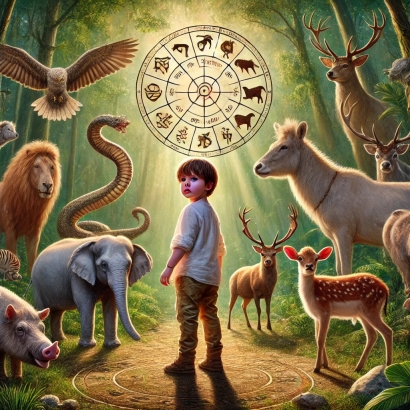
Vedic Astrology / Nakshatras

In Vedic astrology, the Nakshatras are 27 lunar mansions that represent distinct segments of the zodiac, each spanning 13 degrees and 20 minutes. These Nakshatras are considered to be highly precise in interpreting human behavior and personality traits, as they divide the zodiac into smaller, more refined sections than the 12 traditional signs. Each Nakshatra is associated with a ruling planet, deity, and element, giving it a unique energy. Additionally, Nakshatras are classified by their gender, direction, humor (dosha), Gana (divine classification), orientation, disposition, and mode of functionality, which all contribute to its unique influence. They are also linked to specific animals, celestial lineages, and castes, further enriching their significance. Nakshatras also govern specific body parts and relate to particular places, offering deep insights into a person’s physical, emotional, and environmental influences.
The 27 Nakshatras represent the entire journey of life, from birth to death, symbolizing the evolution of human experience. By examining the Nakshatras in a natal chart, we can uncover a person's natural tendencies, core motivations, and behavioral patterns. They reveal why we act the way we do, how we respond to situations, and what drives our decisions. Each Nakshatra offers insights into our functioning, helping to understand what motivates us, what influences our behavior, and how we approach different aspects of life.
Nakshatras, numerology, and Destiny Cards are core tools for anyone deeply interested in human behavior and nature. Numerology provides a foundational understanding of our basic life vibrations, showing key personality traits and life themes. Destiny Cards build upon this, offering a deeper look into life’s direction, personality core, and the impact of past lives. Nakshatras in Vedic astrology delve further, offering highly detailed insights into behavior, motivations, and life patterns. Together, these systems form a powerful toolkit for exploring and understanding the complexities of human nature and experience.